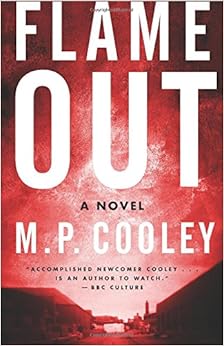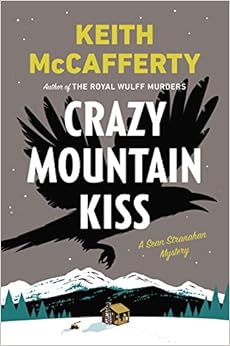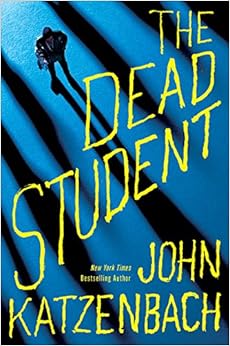Engaging Patrons Through Programming
1st up: Henry Makncke, a scientist who spoke about the brain, and its development.
His main point being that the brain is built up through learning and experiences. Learning and experiences that are facilitated by library services.
2nd up
Julie Acteson from the King County Library System spoke about her systems adult programming.
After assessing their own services:
-they realized that 68% of the library's programming was aimed at children.
-33% of their pop. was aged 50+. A large percentage that was not received the same level of service.
Why do adults matter in libraries? They make up the current voting population!
But their current programming though minimal was not seeing the high attendance #'s they hoped for.
So they revamped their adult programming.
A few things they did:
Each calendar year had a different them/ focus
2013 A Place at the Table (focus on food, cooking, nutrition)
-encouraged patrons to donate tot he food drive (giving back to the community)
-cooking class
-international cuisine
-organic gardening
2014 Start to Fitness
-fitness classes
-cardio training
-tied into the local sports teams
2015 Mind Matters (focus on promoting brain fitness)
-home organization tips
-yoga
2016 Everyone's Talking About It
-local and international issues
-trending topics
How did they do it?
-surveyed the community to determine, brand awareness (if and how strong), amount of motivation for attending programs, barriers to attendance, messaging preferences, location preferences.
This initial phase was slow and lengthy but vital to a successful, quality program series.
-took more programming outside the library
-formed strong, critical partnerships (American Heart Assoc., Brain HQ)
-PR and Promotion (reach out to local radio and TV stations- their interns used library programming info to learn how to write PR's)












![Data Everywhere Trend [Category - Technology]](http://www.ala.org/transforminglibraries/sites/ala.org.transforminglibraries/files/content/LibraryoftheFuture/TrendsLogos/DataEverywhere2015.png)
![Digital Natives Trend [Category - Demographics]](http://www.ala.org/transforminglibraries/sites/ala.org.transforminglibraries/files/content/LibraryoftheFuture/TrendsLogos/DigitalNatives2015.png)
![Drones Trend [Category - Technology]](http://www.ala.org/transforminglibraries/sites/ala.org.transforminglibraries/files/content/LibraryoftheFuture/TrendsLogos/Drones2015.png)
![Emerging Adulthood Trend [Category - Demographics]](http://www.ala.org/transforminglibraries/sites/ala.org.transforminglibraries/files/content/LibraryoftheFuture/TrendsLogos/EmergingAdulthood.png)
![Fast Casual Trend [Category - Society]](http://www.ala.org/transforminglibraries/sites/ala.org.transforminglibraries/files/content/LibraryoftheFuture/TrendsLogos/FastCasual2015.png)
![Flipped Learning Trend [Category - Education]](http://www.ala.org/transforminglibraries/sites/ala.org.transforminglibraries/files/content/LibraryoftheFuture/TrendsLogos/FlippedLearning2015.png)
![Gamification Trend [Category - Education]](http://www.ala.org/transforminglibraries/sites/ala.org.transforminglibraries/files/content/LibraryoftheFuture/TrendsLogos/Gamification2015.png)
![Income Inequality Trend [Category - Economics]](http://www.ala.org/transforminglibraries/sites/ala.org.transforminglibraries/files/content/LibraryoftheFuture/TrendsLogos/IncomeInequality.png)
![Internet of Things Trend [Category - Technology]](http://www.ala.org/transforminglibraries/sites/ala.org.transforminglibraries/files/content/LibraryoftheFuture/TrendsLogos/InternetofThings2015.png)
![Maker Movement Trend [Category - Society]](http://www.ala.org/transforminglibraries/sites/ala.org.transforminglibraries/files/content/LibraryoftheFuture/TrendsLogos/MakerMovement2015.png)
![Privacy Shifting Trend [Category - Society]](http://www.ala.org/transforminglibraries/sites/ala.org.transforminglibraries/files/content/LibraryoftheFuture/TrendsLogos/PrivacyShifting2015.png)
![Robots Trend [Category - Technology]](http://www.ala.org/transforminglibraries/sites/ala.org.transforminglibraries/files/content/LibraryoftheFuture/TrendsLogos/Robots2015.png)
![Sharing Economy Trend [Category - Economics]](http://www.ala.org/transforminglibraries/sites/ala.org.transforminglibraries/files/content/LibraryoftheFuture/TrendsLogos/SharingEconomy2015.png)
![Unplugged Trend [Category - Technology]](http://www.ala.org/transforminglibraries/sites/ala.org.transforminglibraries/files/content/LibraryoftheFuture/TrendsLogos/Unplugged2015.png)
![Urbanization Trend [Category - Demographics]](http://www.ala.org/transforminglibraries/sites/ala.org.transforminglibraries/files/content/LibraryoftheFuture/TrendsLogos/Urbanization2015.png)











